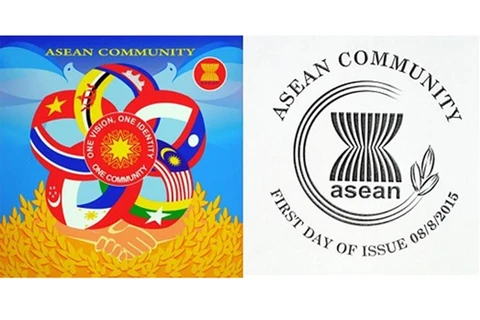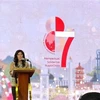The Association of Southeast Asian Nations (ASEAN) has been considered one of the two most successful regional groupings that has grown in stature over time thanks to its diversity, Secretary General Le Luong Minh told the Vietnam News Agency in a recent interview ahead of the 48th founding anniversary of the bloc (August 8).
ASEAN is one of the most diverse blocs globally with the average income per capita in the wealthiest country 76 times higher than the poorest, and the most populous nation boasting a population 600 times larger than the smallest, he said.
Based on the basic principles mentioned in the Treaty of Amity and Cooperation in Southeast Asia, including respect for independence, sovereignty, territorial integrity, equality and national identity; non-interference in each other’s affairs; settlement of differences and disputes by peaceful means; and refraining from the use of force or threat to use force, ASEAN has nurtured a culture of negotiation, consultation and consensus in its own way, thereby fostering trust among member states and ensuring peace and security in the region.
From 2001-2013, ASEAN achieved three major successes. Firstly, its gross domestic product tripled to almost 2.8 trillion VND (129 million USD) last year, becoming the seventh largest economy and is on way to be the fifth largest by 2030 and fourth by 2050.
Secondly, its buoyant growth makes it easier for ASEAN to play a central role in mechanisms maintaining regional peace, security and stability, namely the ASEAN Regional Forum, the East Asia Summit, the ASEAN+3 and ASEAN Defence Ministers’ Meeting.
Thirdly, the bloc has evolved into an entity gearing towards socio-economic development from its beginning as a security alliance founded in the Cold War, during which the idea of a common ASEAN Economic Community was born and adopted in 2003.
Commenting on the role and position of today’s ASEAN, the Secretary General confirmed that the bloc is an important entity of the peace and security maintenance process with a number of initiatives to build trust and prevent and manage conflicts through regional frameworks and mechanisms.
ASEAN also plays a pivotal role in ensuring peace and security in the East Sea, as evidenced by its continuous efforts to build trust and promote dialogue and cooperation on maritime issues.
Economically, ASEAN member countries expanded by an average of 5 percent per year despite the global economic slowdown.
In the socio-cultural field, they scored pragmatic achievements in developing regulations and policies for human development and promotion of social rights and welfares, towards a sustainable environment and identity.
ASEAN has formed strategic or comprehensive partnerships with 10 dialogue nations and as many as 83 countries and regional organisations have assigned ambassadors to ASEAN states.
Minh said the grouping has essentially accomplished 93 percent of goals of the ASEAN Community construction roadmap.
With the birth of a common Community slated for late 2015, ASEAN is expected to become an integrated political and economic entity playing a key role in the region. It has made remarkable strides in realising initiatives on narrowing the development gap and a comprehensive plan on ASEAN connectivity.
The delivery of the ASEAN Charter in 2008 was a significant milestone in fine-tuning legal and regulatory frameworks for the region. The association has reshuffled its operations in a way that improves regulatory capacities and coordination efficiency. Meanwhile, joint connection among member states has deepened and become more all-encompassing on the basis of friendship, understanding, trust, solidarity and mutual support—bilaterally and multilaterally.
Turning to the post-2015 ASEAN Community Vision, Minh said ASEAN will prioritise improving regulations and coordination efficiency across political-security, economic and socio-cultural pillars.
A highlight of the vision is producing a people-centered community where ASEAN citizens will live in an environment of peace, stability and harmony and are able to prosper in an open and highly competitive economic space offering full social welfare services and respected cultural identities.
The bloc will continue pursuing the goal of opening a common market and manufacturing base in which trade, services and investment will be fully liberalised.
Sustainable and uniform economic development will be the central focus of the regional economic connectivity roadmap for the next decade, Minh added.
To make the 2025 ASEAN Community Vision a reality, he said specific tasks across the three pillars will have deadlines to bring immediate and practical benefits to its people, which will promote a “culture of enforcement” and foster ASEAN’s pivotal role in the evolving regional architecture.-VNA























